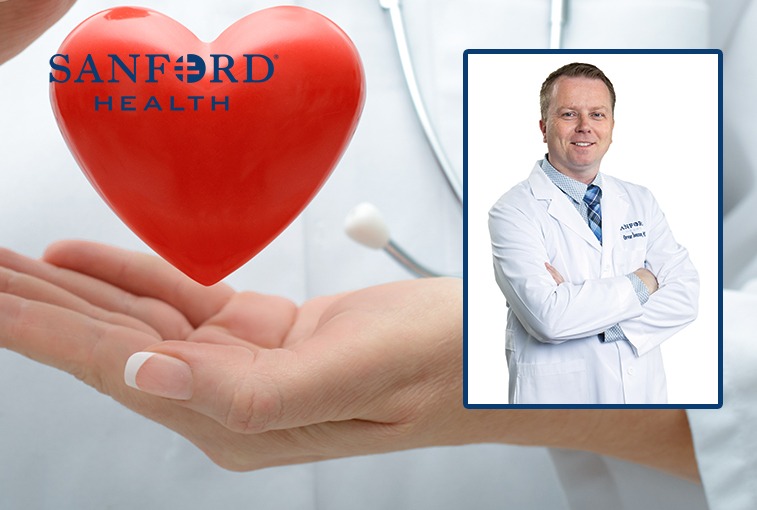Each day, nearly 2,300 Americans die of cardiovascular disease — the leading cause of death in the United States. This breaks down to an average of one death every 39 seconds. February is American Heart Month. It’s an opportunity to share important information about heart disease.
In this program,Orvar Jonsson, M.D., withSanford Cardiovascular Institutediscusses signs and symptoms of heart disease and heart failure. Dr. Jonsson is the region’s only board-certified heart failure cardiologist.
You can learn more about theheart screeningsand care at Sanford Health in this podcast edition of “A Better You,” which airs Saturday mornings onKSOO-AM.
This program originally aired in February 2018.
Read more
- Heart screenings protect against disease, save lives
- Video: Heart-healthy recipes shake up Heart Month menu
- Podcast: Ex-engineer now designs for heart patients
Heart month: Learn more about cardiologists
心脏病专家是受过额外训练来治疗心脏和血管问题的医生。心脏病专家至少受过10年的医学培训。This includes:
- 4 years of medical school
- 3 years of training in internal medicine
- 3 or more years in other training in cardiology and its related fields
He or she must then pass a test from the American Board of Internal Medicine (ABIM) in cardiology. Then a doctor is a board-certified cardiologist.
When would I see a cardiologist?
This kind of doctor is not a primary health care provider. Cardiologists only work with people who need special heart care, or have had heart conditions in the past. Other doctors may consult with them about heart disease or other conditions. You may see a cardiologist if you have symptoms of heart or blood vessel problems. These may include:
- Shortness of breath
- Dizziness
- Fainting
- Chest pain
- Fluttering feelings in your chest
What does a cardiologist do?
A cardiologist diagnoses and treats problems of the heart and blood vessels. These include:
- Heart attack
- Heart failure
- Valve problems
- Heart rhythm problems (arrhythmias)
- High blood pressure
Cardiologists work in hospitals and in private practices. They may:
- Give you a physical exam
- Order tests, such as an electrocardiogram (ECG), blood tests, exercise stress test, or echocardiogram
- Interpret the results of tests to diagnose a health condition you may have
- Prescribe treatment, such as medicine
- Advise lifestyle changes, such as changes in your diet, weight, stress, and physical activity
- Counsel you on risks and prevention
- Do some procedures, such as cardiac catheterization or implant a pacemaker
- Refer you to a cardiac surgeon or an interventional cardiologist if needed
Some cardiologists also teach in universities and do research. They may help to create new treatments for heart problems.
Special types of cardiologists
A cardiologist will often focus his or her care on 1 type of patient. Anadult cardiologistsees only adults. Apediatric cardiologistsees only babies, children, or teens. They are certified by the American Board of Pediatrics.
A cardiologist may get more training in a special area of heart care. ABIM also certifies doctors incardiovascular disease. This focuses on care for people with problems of the heart and blood vessels. These include:
- Heart attack
- Heart valve disease
- High blood pressure
- Some kinds of arrhythmia
These doctors can also be certified in what is called a subspecialty. These include:
- Advanced heart failure and transplant cardiology.This focuses on care for people who have heart failure. They may need a heart transplant.
- Clinical cardiac electrophysiology.This focuses on testing and treating the heart for rhythm problems.
- Interventional cardiology.重点是在血管中使用细管(导管)。This is done to find and treat problems in the vessels and the heart.
…
Posted InHealthy Living,Heart
